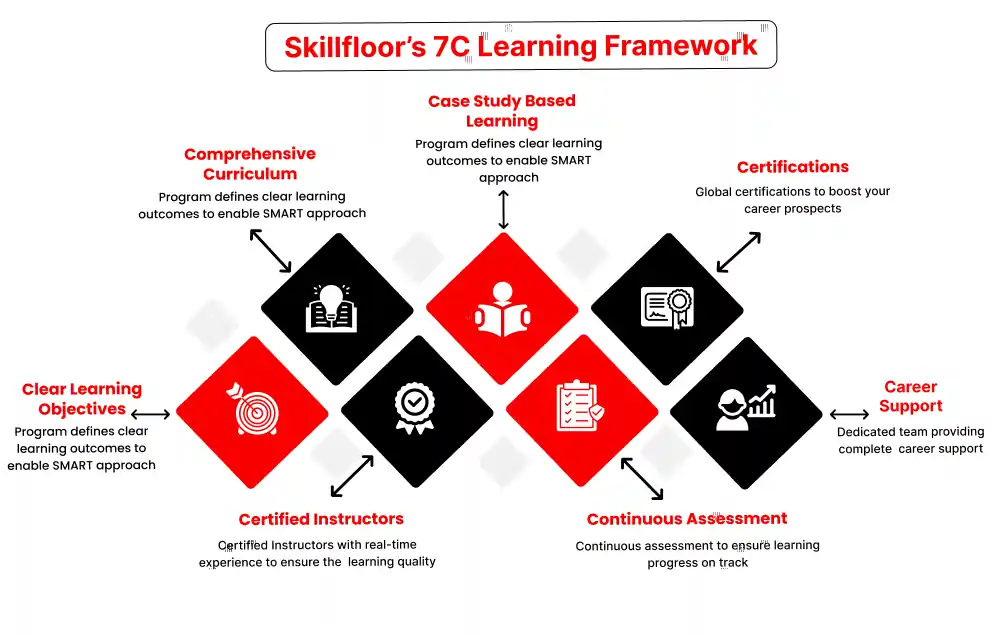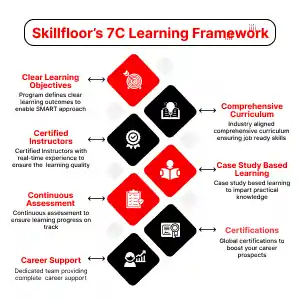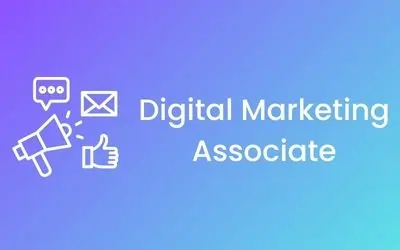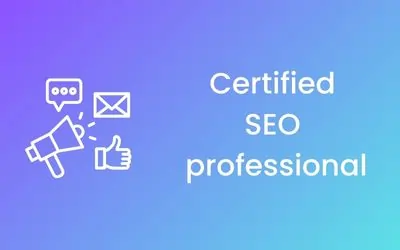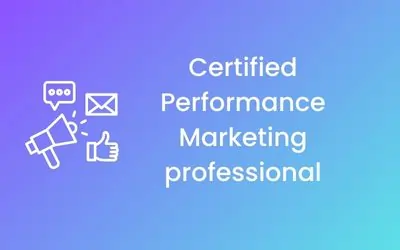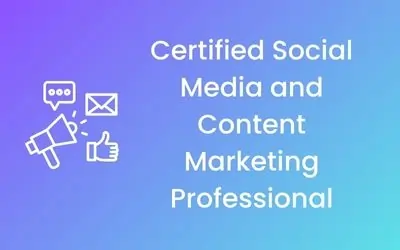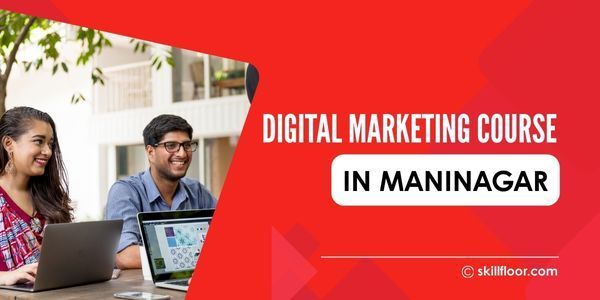-
High Job Demand: Digital marketing jobs in India are growing rapidly. It is estimated that over 1.5 million new jobs will be created in the sector by 2025 as companies increasingly require professionals to manage social media, SEO, content, and online advertising campaigns.
-
Swift Industry Growth: India’s digital marketing industry is expanding at a fast pace, valued at approximately USD 6.7 billion in 2025, with projections of over 30% growth annually. This growth shows that businesses are investing heavily in online strategies and need trained professionals.
-
Large Online Audience: With more than 800 million internet users in India, there is a massive audience for online campaigns. Skilled digital marketers can reach and engage customers effectively, making campaigns more impactful and helping brands grow significantly.
-
Diverse Career Options: Digital marketing offers a wide range of career paths, including SEO specialist, social media manager, content strategist, paid ads expert, and data analyst. Training equips learners to explore these roles and specialize in areas that match their interests.
-
High Earning Potential: Entry-level digital marketers in India earn competitive salaries, typically starting around ₹3–5 lakh per year. With experience and advanced skills, professionals can earn ₹10–15 lakh or more, making digital marketing a financially rewarding career.
-
Affordable Skillfloor Training: The Skillfloor Digital Marketing course in India is priced at Rs. 14,900, offering complete training, project work, and career support. This affordable fee provides practical skills and certification for job readiness.
-
Digital Surpasses Traditional Media: Digital marketing now accounts for nearly 46% of India’s total advertising spending, overtaking TV, print, and radio. This shift highlights the importance of learning digital skills to remain relevant in the changing marketing landscape.
-
Work Flexibility: Digital marketing offers flexible work options, including remote work, freelancing, and part-time projects. Professionals can manage multiple clients or campaigns from home, giving freedom and independence while building a successful career.
-
E-commerce & Startup Growth: India’s e-commerce market has crossed $100 billion and is expected to grow further. Digital marketers are crucial for businesses and startups to increase sales, generate leads, and build brand presence online effectively.
-
Future-Proof Career: With the digital ecosystem continuously evolving, digital marketing skills are expected to remain in demand. As more businesses invest online, trained professionals will enjoy stable, long-term career opportunities and growth prospects.
Role of Digital Marketing in Indian Businesses
-
Digital marketing helps Indian businesses reach over 800 million internet users, increasing brand visibility and awareness, while enabling cost-effective campaigns compared to traditional marketing channels.
-
Businesses in India spend nearly ₹50,000+ crore annually on digital ads, showing the growing importance of online marketing for customer acquisition and engagement.
-
Social media marketing allows brands to connect with 400+ million active users in India, building communities and loyalty for long-term growth.
-
E-commerce businesses in India use digital marketing to boost sales, as the online retail market crosses $100 billion, driving conversions and measurable ROI.
-
Digital marketing enables precise targeting using data analytics, helping Indian businesses reach the right audience and increase campaign efficiency by up to 50%.
-
Small and medium businesses leverage online marketing to compete with large brands, gaining visibility and credibility in local and national markets.
-
SEO, content, and paid campaigns help Indian businesses improve online presence, with over 46% of total ad spend now digital, ensuring measurable impact and results.
Digital Marketing Strategy and Planning for Students
-
Target Audience Insights: Understanding your audience helps you create campaigns that connect with people’s interests and preferences. Knowing what engages users online improves your project outcomes and practical learning.
-
Budget Allocation Planning: Even with small budgets, planning how to spend on ads or tools teaches cost management. Students practicing budget allocation can optimize campaigns for better results without overspending.
-
Channel Selection Strategy: Choosing the right platforms, like social media, email, or blogs, allows students to reach the most relevant audience. This builds skills in targeting and multi-channel campaign planning.
-
Content Strategy Development: Creating high-quality, engaging content increases reach and impact. Students who plan content around audience preferences can see higher engagement and learn what works in real-world campaigns.
-
Campaign Timeline Planning: Scheduling campaigns strategically helps students understand timing and seasonal trends. Planning projects for peak online activity improves visibility and demonstrates effective digital marketing execution.
-
Performance Measurement Metrics: Using tools like Google Analytics or social media insights teaches students how to track traffic, engagement, and ROI. Measuring results improves skills in data-driven decision-making.
-
Competitor Analysis Insights: Studying other campaigns helps students identify trends, strengths, and gaps. Applying these insights can enhance projects and improve campaign performance, making learning practical and strategic.
Digital Marketing Course Fees in India
-
Basic/Short-Term Courses (1–3 Months): ₹10,000–₹30,000.
-
Advanced Certificate Courses (3–6 Months): ₹20,000–₹150,000.
-
Post-Graduate/Diploma Programs (6–12 Months): ₹100,000–₹500,000.
-
Executive/Master’s Programs (12–18 Months): ₹400,000–₹800,000.
Skillfloor Course Fee Structure:
Skillfloor’s digital marketing course fee in India is competitively priced at Rs. 14,900, offering certified professional programs with hands-on projects, live training, internships, and career support, making it a cost-effective choice.
-
Certified Social Media & Content Marketing Professional: Rs. 14,900 (discounted from Rs. 60,000)—2 months + 1-month internship
-
Certified Performance Marketing Professional: Rs. 14,900 (discounted from Rs. 60,000)—2 months + 1-month internship
-
Certified SEO Professional: Rs. 14,900 (discounted from Rs. 60,000)—2 months + 1-month internship
-
Certified Digital Marketing Professional (Bundle): Rs. 29,900 (includes SEO, Performance & Social Media courses + 2-month internship)
How Indian Startups Are Leveraging Digital Marketing for Growth
Indian startups are swiftly using digital marketing to grow, with social media, search, and video helping them reach millions of customers quickly. Around 80% of small businesses in India now use online ads, and many allocate nearly half of their marketing budget to digital platforms. Mobile marketing dominates, reaching urban and rural audiences alike, while regional language campaigns expand brand presence beyond big cities. Startups combine SEO, SEM, and content marketing to boost visibility cost‑effectively. This approach allows early-stage companies to scale fast without heavy traditional advertising. By embracing digital trends, Indian startups stay competitive in growing markets.
Digital marketing also offers measurable results, helping startups optimize campaigns even on limited budgets. Over 70% of startups now use AI tools and omnichannel strategies to improve engagement and conversion. Influencer collaborations and video content build trust and attract new customers efficiently. Platforms like WhatsApp and Instagram drive strong interaction and lead generation. This strategy not only increases visibility but also supports sustainable growth. For Indian startups, digital marketing has become a key tool for success and expansion.
Skillfloor Offline Centers and Accessibility Across Major Indian Cities
Skillfloor has established its digital marketing training centers in major cities across India, making it easy for students and working professionals to access quality education. Each center is equipped with modern classrooms, practical labs, and experienced trainers. Additionally, Skillfloor offers online sessions for those who cannot attend in person, ensuring flexible learning options.
-
Bangalore: With learning centers in key areas like BTM, Marathahalli, and Kudlu Gate, Skillfloor offers industry-aligned training tailored to Bangalore’s competitive tech and startup ecosystem. Our digital marketing course in Bangalore focuses on practical skills, real-time tools, and job-ready exposure that match current hiring expectations. Learners gain hands-on experience and industry-relevant knowledge to build strong career opportunities in the digital space.
-
Hyderabad: With centers in Madhapur and Kukatpally, Skillfloor offers industry-focused training tailored to Hyderabad’s growing tech and business ecosystem. Our Digital Marketing course in Hyderabad emphasizes practical learning, real-time tools, and job-ready skills aligned with current industry demand. Learners gain hands-on experience and industry-relevant knowledge to build strong career opportunities in the digital marketing field.
-
Chennai: In Chennai, Skillfloor provides specialized training with centers in Anna Nagar, Guindy, and Perungudi, where the Digital Marketing course in Chennai equips learners with hands-on experience, modern tools, and career-ready skills for today’s digital industry.
-
Pune: In Pune, Skillfloor offers advanced digital marketing training with centers in Kharadi and Bikaner, and the Digital Marketing course in Pune helps learners gain practical skills, industry-relevant tools, and job-ready expertise.
-
Ahmedabad: In Ahmedabad, Skillfloor provides professional digital marketing training with centers in Maninagar and Navrangpura, and the Digital Marketing course in Ahmedabad focuses on practical projects, modern marketing tools, and skills that prepare learners for real-world opportunities.
-
Coimbatore: Skillfloor’s Coimbatore centers in Peelamedu, RS Puram, and Gandhipuram provide learners with practical digital marketing training, where the Digital Marketing course in Coimbatore focuses on mastering real-world strategies, tools, and techniques for a successful career.
Why Choose Skillfloor for Learning Digital Marketing in India
Choosing Skillfloor for learning digital marketing in India gives you hands-on training in high-demand skills, as the digital ad market now covers nearly 46% of India’s total advertising spend. Students work on real projects across SEO, social media, PPC, and content marketing. Skillfloor’s curriculum is updated to match industry trends, ensuring learners gain practical knowledge. With experienced trainers and modern tools, students build skills that employers actively seek. The program also helps learners gain confidence in executing campaigns. This makes Skillfloor a preferred choice for career-focused individuals.
Skillfloor also focuses on career outcomes, with India projected to have 1.5 million digital marketing job openings by 2025. Learners receive mentorship, portfolio guidance, and placement support to stand out in the competitive job market. Exposure to AI-powered tools and analytics improves employability. Practical exercises prepare students for real-world scenarios. Personalized support ensures each learner can maximize opportunities. Choosing Skillfloor can accelerate growth and success in India’s digital marketing field.
Career Growth and Opportunities in India’s Digital Marketing Industry
-
Digital marketing in India is booming, with over 1.5 million job opportunities expected by 2025, giving freshers and experienced professionals multiple career options in SEO, social media, content, and advertising.
-
The sector is valued at around USD 6.7 billion in 2025, growing at 30% annually, ensuring stable long-term career growth for trained digital marketers across industries.
-
Social media roles are rising rapidly, with India having over 400 million active social media users, creating strong demand for community managers, content creators, and engagement specialists.
-
E-commerce growth in India exceeds $100 billion, leading to increasing demand for marketers who can manage campaigns, increase sales, and drive conversions online.
-
Freelancing opportunities are expanding, with a 40% rise in project-based work, allowing digital marketers to work remotely, manage multiple clients, or start entrepreneurial ventures.
-
Paid advertising and analytics roles are in demand, as businesses invest heavily in digital campaigns, and trained professionals can command competitive salaries ranging from ₹3–15 lakh annually.
-
Developing trends like AI, automation, and influencer marketing provide new career paths, giving Indian marketers opportunities to specialize and grow in high-demand areas while staying ahead of the competition.
Skillfloor Placement Assistance After Digital Marketing Course in India
- Dedicated Job Support: Skillfloor offers dedicated placement support, helping over 75% of graduates secure interviews within 60 days, with personalised resume guidance and interview prep tailored to India’s digital job market demand.
- Industry Partnerships Network: Through partnerships with 300+ Indian companies, Skillfloor connects students to real opportunities, increasing placement chances and helping learners get roles in startups, agencies, and corporate marketing teams.
- Live Mock Interviews: Skillfloor conducts regular live mock interviews, improving confidence and performance, with over 80% of participants seeing better results in actual job interviews after structured practice sessions.
- Career Mentorship Sessions: Students receive career mentoring from industry experts — 1‑on‑1 guidance on roles, salary expectations, and growth paths, helping them transition from training to real digital marketing careers.
- Job Alerts & Referrals: Skillfloor sends daily job alerts and referrals to learners, with many getting priority access to openings not widely advertised, speeding up their job search in India’s competitive digital sector.
- Portfolio Building Support: Skillfloor helps students build strong portfolios with projects and case studies, boosting the credibility of learners with portfolios who show higher interview callbacks and better employer interest.
- Placement Record Tracking: Skillfloor tracks placement outcomes, reporting consistent growth in placement rates year‑on‑year, reflecting strong alignment between training outcomes and industry expectations in India’s evolving digital marketing field.
Skillfloor provides the perfect blend of practical training and career support for aspiring digital marketers in India. With industry-aligned curriculum, hands-on projects, and mentorship, learners gain the skills employers actively seek. The program’s focus on real-world tools, portfolio building, and placement guidance ensures faster career growth. As India’s digital marketing sector continues to expand, Skillfloor equips students to confidently tap into emerging opportunities. Choosing Skillfloor not only enhances knowledge but also boosts employability and professional confidence. It is a strategic step for anyone aiming to succeed in India’s competitive digital world.



